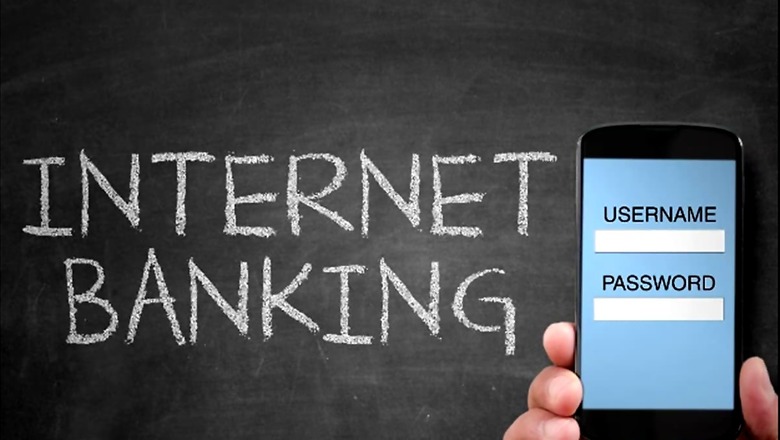
views
Internet banking has become increasingly popular for its convenience and accessibility. However, it’s crucial to take certain precautions to ensure the safety and security of your online banking activities. Keeping internet banking safe is crucial to protect your finances, prevent identity theft, maintain privacy, and ensure the trust and reliability of online banking services. By following best practices for internet banking security, you can minimise risks and enjoy the benefits of managing your finances online with peace of mind.
Among general safety tips to protect your personal information and keep your online banking accounts safe, you should use a strong password and change it regularly. Be careful about what links you click on, and never do online banking on public Wi-Fi. Keep your software up to date, and be aware of the signs of fraud. You can also add an extra layer of security by using two-factor authentication (2FA) and keeping your computer secure. Follow guidelines issued by your bank as they update the security system to keep the banking ecosystem safe.
Also Read: Lost Your SBI Debit Card? Here’s How To Block Card Instantly Online Or Via SMS
Here are some essential safety tips for internet banking as suggested by HDFC Bank;
Do’s of Netbanking
- Keep your Customer ID and IPIN confidential and do not disclose it to anybody, including Bank staff.
- Always visit the HDFC Bank’s NetBanking site through HDFC Bank’s home page by typing the bank’s website address (www[dot]hdfcbank[dot]com) on to the browser’s address bar. Check the URL as https://netbanking.hdfcbank.com to verify the Bank’s NetBanking page and the PAD Lock symbol at the top left of the browser.
- Disable the “Auto Complete” feature on your browser.
- Use a virtual keyboard feature while logging into your internet banking account.
- Always type in your confidential account information. Do not copy paste it.
- Monitor your transactions regularly. Use HDFC Bank’s “InstaAlerts” service and bring any fraudulent transaction to the notice of the bank.
- Always logout when you exit NetBanking. Do not directly close the browser.
- Change your IPIN as soon as you receive it by logging into your NetBanking account. Memorise your IPIN, do not write it down anywhere.
- Ensure your computer has a firewall and the latest version of antivirus software installed.
- Keep changing your IPIN regularly.
- On the bank’s website, check for a valid SSL security certificate (https). The “S” added to http represents a secure website.
- Check your account statements periodically to ensure that all entries are correctly captured. In case of any discrepancy, inform the Bank immediately.
Don’ts of Netbanking
- Avoid accessing internet banking from shared computer networks such as cyber cafes or public Wifi networks like hotels/airports etc.
- Do not click on links in the emails or sites other than www.hdfcbank.com to access your NetBanking webpage.
- Don’t write your passwords anywhere or share your computer with unknown sources.
- Do not disclose your passwords, OTPs, Debit Card Number, CVV etc. to anyone (including Bank Staff).
- Don’t respond to emails that request personal information.
- Do not choose passwords that are easy to guess like your date of birth, spouse’s name etc.
- Never download an attachment if it is not from a trusted source
- Don’t leave your account unattended after logging in.
Maintaining the safety of internet banking builds trust in the online banking system as a whole. When individuals feel confident about the security of their online banking activities, they are more likely to use and adopt online banking services. This trust is essential for the growth and development of online banking as a reliable and convenient financial tool.




















Comments
0 comment